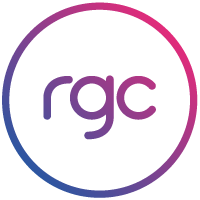The role of Communications Director in both global and local organisations has historically focused on a number of key traditional strategies to drive the brand forward. These roles include managing public image and reputation, distributing media releases, statements and alerts, responding to crises, writing speeches, engaging with stakeholders and managing the corporate website, among other tasks. But now, today’s tech-savvy consumers and the way they seek products calls for a lot more than what the traditional corporate communications executive has previously delivered. Today’s comms landscape brings social media, and with that, social media management, where companies must distribute their narratives proactively, respond almost instantaneously to negative public feedback, all throughout several different social media channels. An alarming statistic that featured in this year’s World PR Report, or ‘The Holmes Report’, revealed that by 2020, only 17 per cent of a communications budget will go towards paid media; that is, advertising. But, the same respondents in the report also said that they expected the biggest budget increase in the future will go toward shared media. Shared media intertwines with ‘owned’ media* – but is still a relatively new concept, and forms only as a result of a brand and customers or fans interacting and mutually creating content. This response doesn’t add up, given that social media postings must be sponsored (paid) and targeted perfectly to achieve any real reach or value on shared media platforms. So what does this tell us? Frankly, it says that many communications professionals don’t fully understand social media. Content creation, video production, engaging and creative ideas will propel the most effective media engagement going forward, with 81 per cent of industry leaders flagging a future driven by content creation. Brand reputation, measurement and evaluation, and traditional media relations also ranked highly. But while the tech side of communications is moving fast, it doesn’t mean the core skills of journalism go anywhere. In fact, they’re more valuable than ever in getting short and sharp content through (in 130 Twitter characters or less!) ‘Writing’ was in fact ranked as more critical than strategic planning (84 per cent), social media expertise (76 per cent), and multimedia content development (76 per cent) according to The Holmes Report. This means that by far, writing is what the public uses to first judge a company: this includes professionalism, value to market and intellect. *Owned media: Includes company-owned websites, blogs, social media accounts etc.

